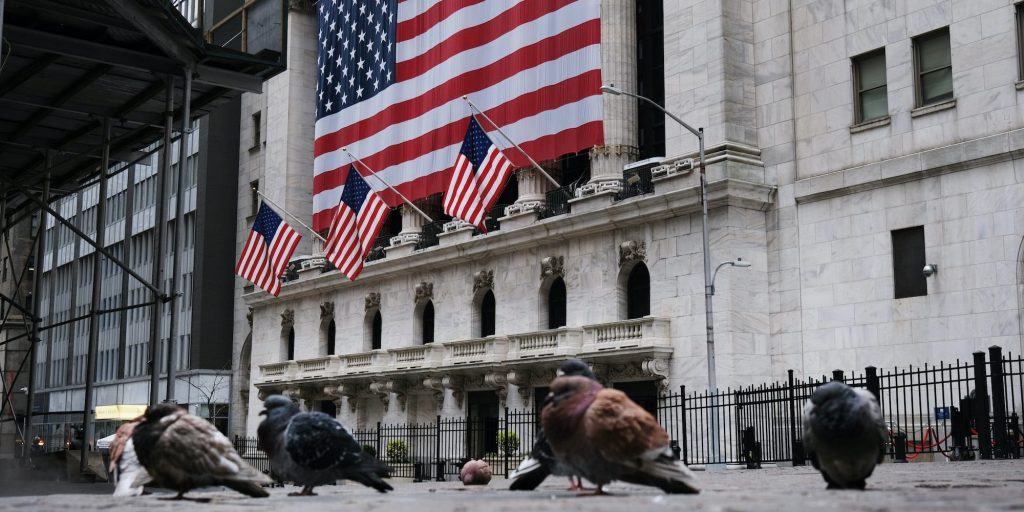- Several Wall Street economists are optimistic the US can dodge a recession in 2022.
- While inflation hit a fresh 41-year high in June, experts see signs that price growth will soon cool.
- Others expect 2023 to pose a greater recession risk as the Fed continues to raise interest rates.
Skyrocketing prices and aggressive rate hikes from the Federal Reserve have much of the US bracing for a recession. A handful of experts on Wall Street still think the economy can dodge a downturn.
Americans already feel awful about the economy, with consumer sentiment sitting near five-decade lows. Financial markets are similarly bleak, with the S&P 500 roughly 20% below the all-time high notched at the start of 2022.
But where the general public might think a downturn is coming soon — or here already — economists and investors aren't so sure. Several big Wall Street firms have recently published more optimistic outlooks for the US economy over the rest of the year.
Stifel analysts laid out a handful of rosy forecasts in a Sunday note to clients, signaling that the second half of 2022 will be much more encouraging than the first. The team recommended clients pivot from defensive investments to growth assets, arguing the risk outlook will improve over the next several months. They see oil prices continuing to fall and inflation peaking, with goods and energy relief coming "soon."
The inflation cooldown will allow the Fed to pause its interest rate hikes by December and help the US avert a downturn, the analysts added. The central bank has begun aggressively raising rates in an effort to tamp down demand and cool the four-decade-high inflation seen in recent months, and the main reason to fear a recession is that the Fed could go too far and trigger a broad downturn. Price growth easing off would lower that risk.
"Recession fear is over-done, and we see no U.S. recession in six to nine months," the team led by Barry Bannister said.
Other banks have revised their odds of a near-term downturn higher in recent weeks, but even those more bearish economists don't regard an economic slump as the most likely outcome. Recessions are most accurately described as a plunge in employment and "an inability of consumers and businesses to meet their financial obligations," Jonathan Golub, chief US market strategist at Credit Suisse, said in a July note, adding "neither of the conditions are present today."
JPMorgan analysts have pored "very carefully" over economic data and are similarly confident in the economy's resilience, Jeremy Barnum, the bank's chief financial officer, told reporters on a call, according to DealBook.
"There is essentially no evidence of actual weakness," he added.
Morgan Stanley analysts boosted the chance of a recession in the next 12 months to 36% on Monday, citing the decline in job openings and an uptick in jobless claims as early signs that growth is slowing. Still, a downturn isn't their base case just yet. The economy is set to grow 2.9% through the year as hiring demand and spending hold strong, analysts led by Mike Wilson said in a recent note, adding the forecast was made during "the most chaotic, hard-to-predict macroeconomic time in decades."
But where the outlook for the rest of 2022 is encouraging, several experts worry next year will pose a greater risk. It's "inevitable" that the economy plunges into a recession in 2023 as inflation proves harder to quash than expected, Bill Dudley, former president of the New York Fed, said in a June column published by Bloomberg. The Fed will have to prioritize fighting inflation over reaching maximum employment as it looks to avoid permanently faster price growth, Dudley added. That opens the door to a rise in unemployment and a decline in economic output.
"From a risk management perspective, better to act now, whatever the cost in terms of jobs and growth. Powell does not want to repeat the mistakes of the late 1960s and the 1970s," Dudley said.

